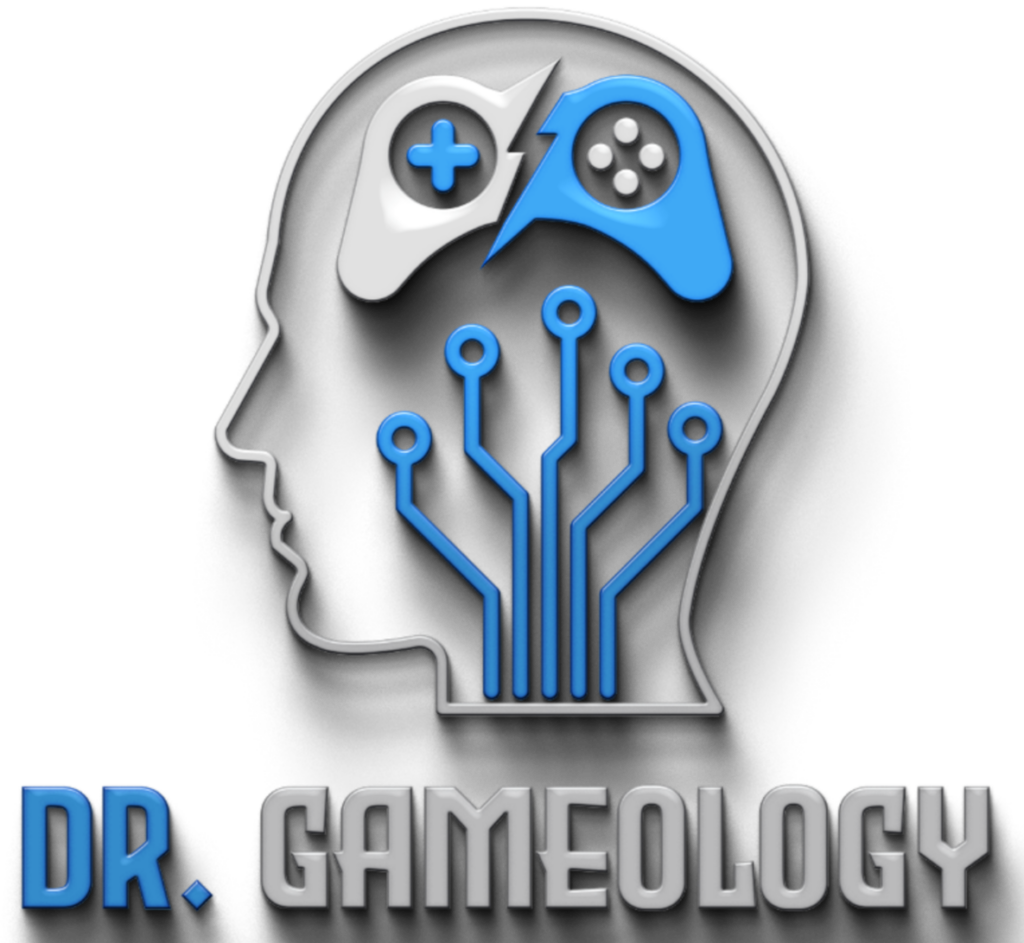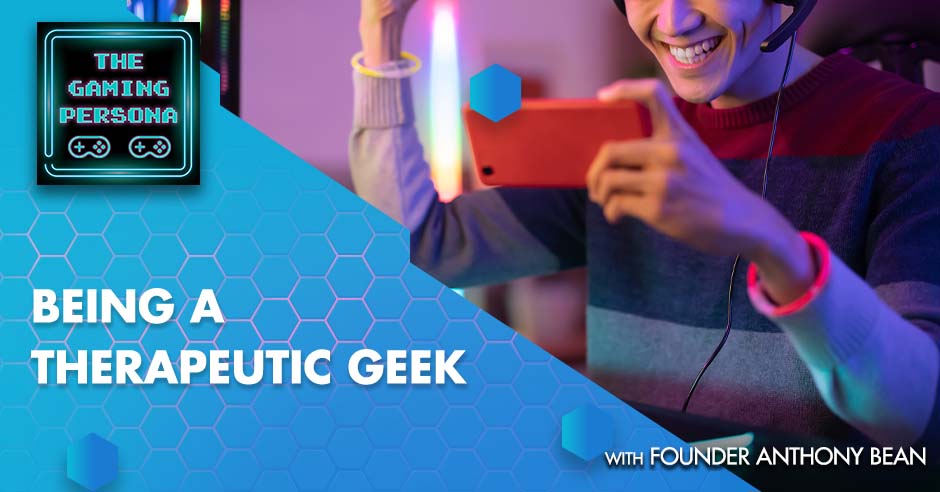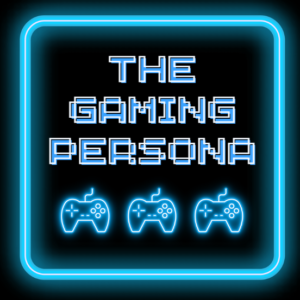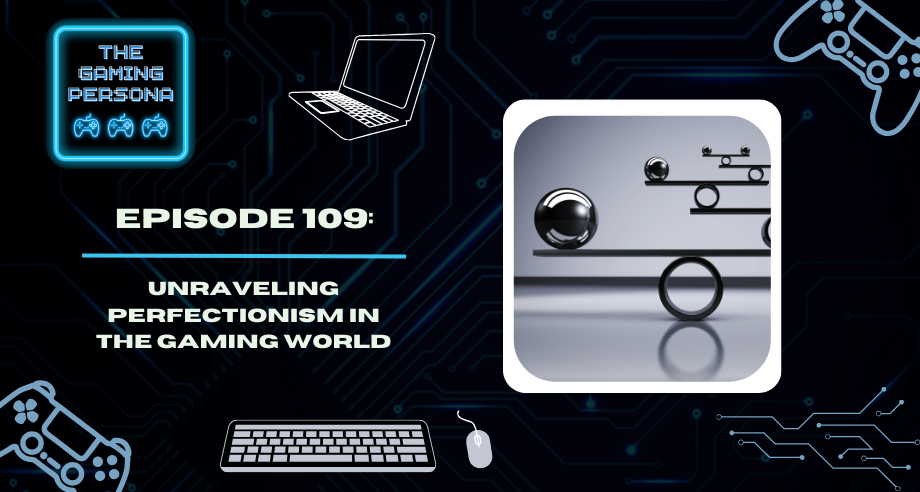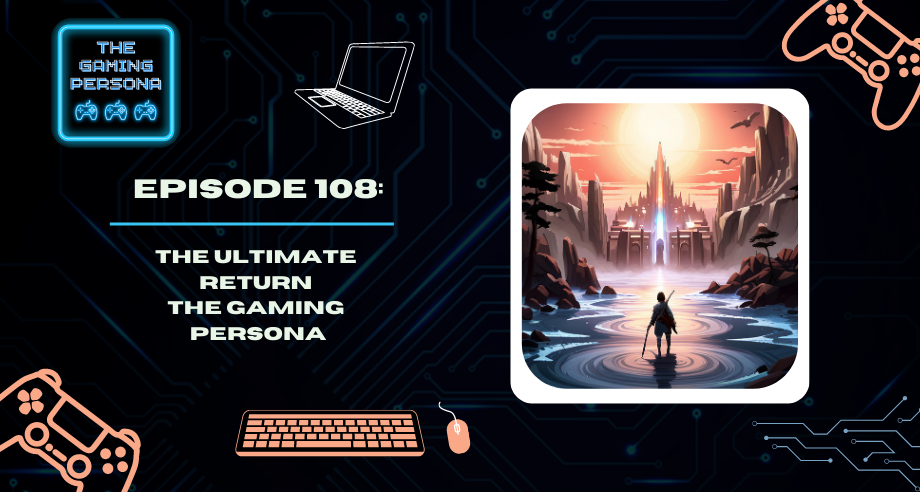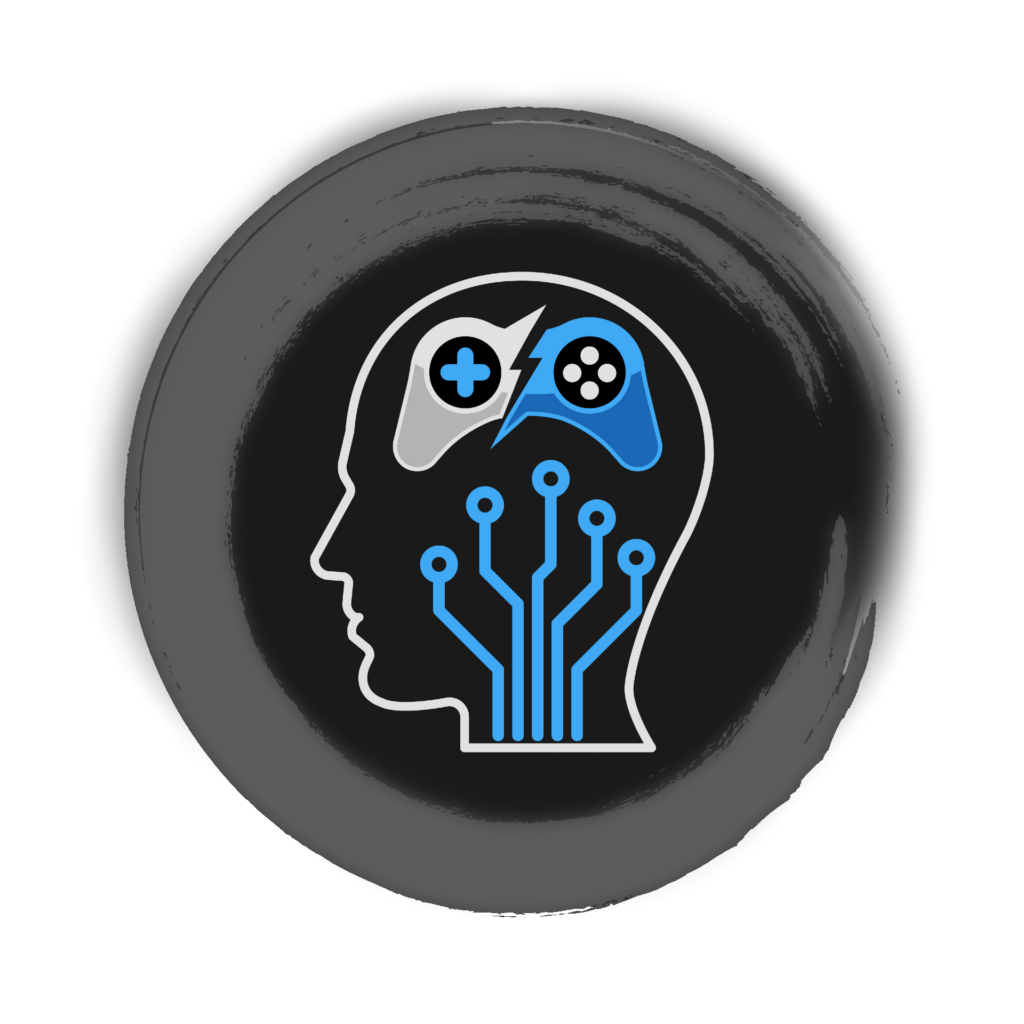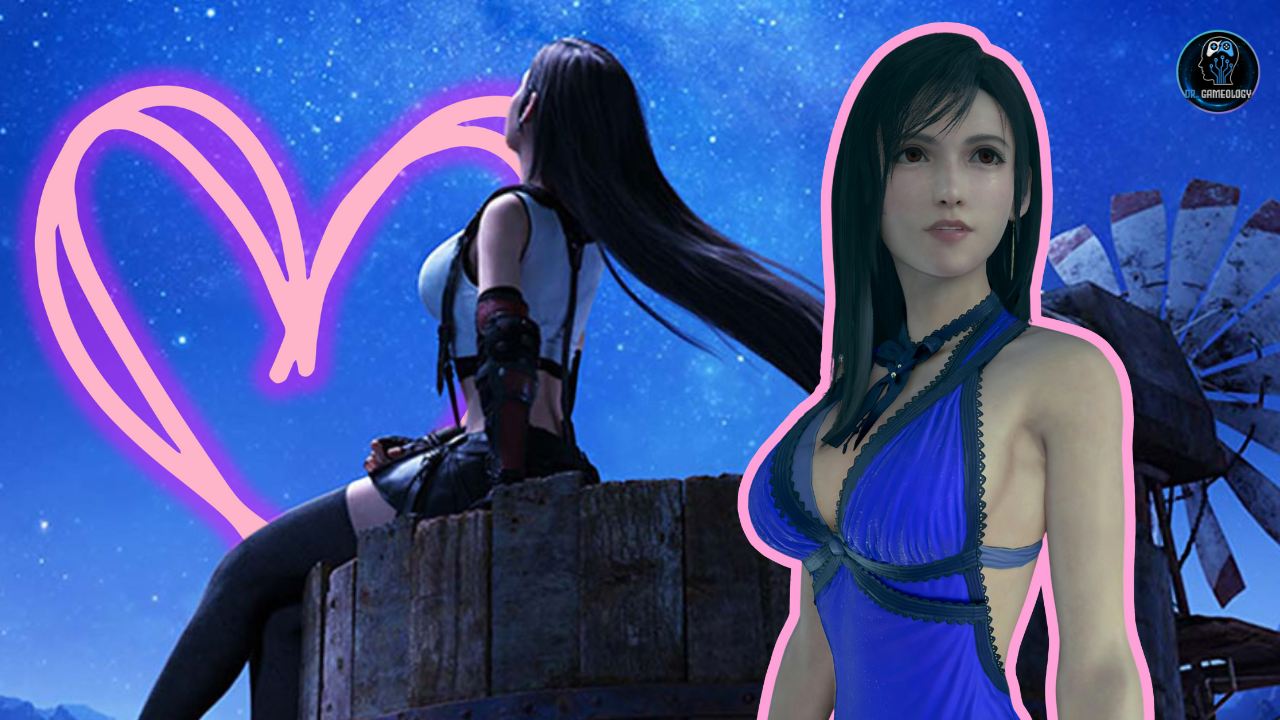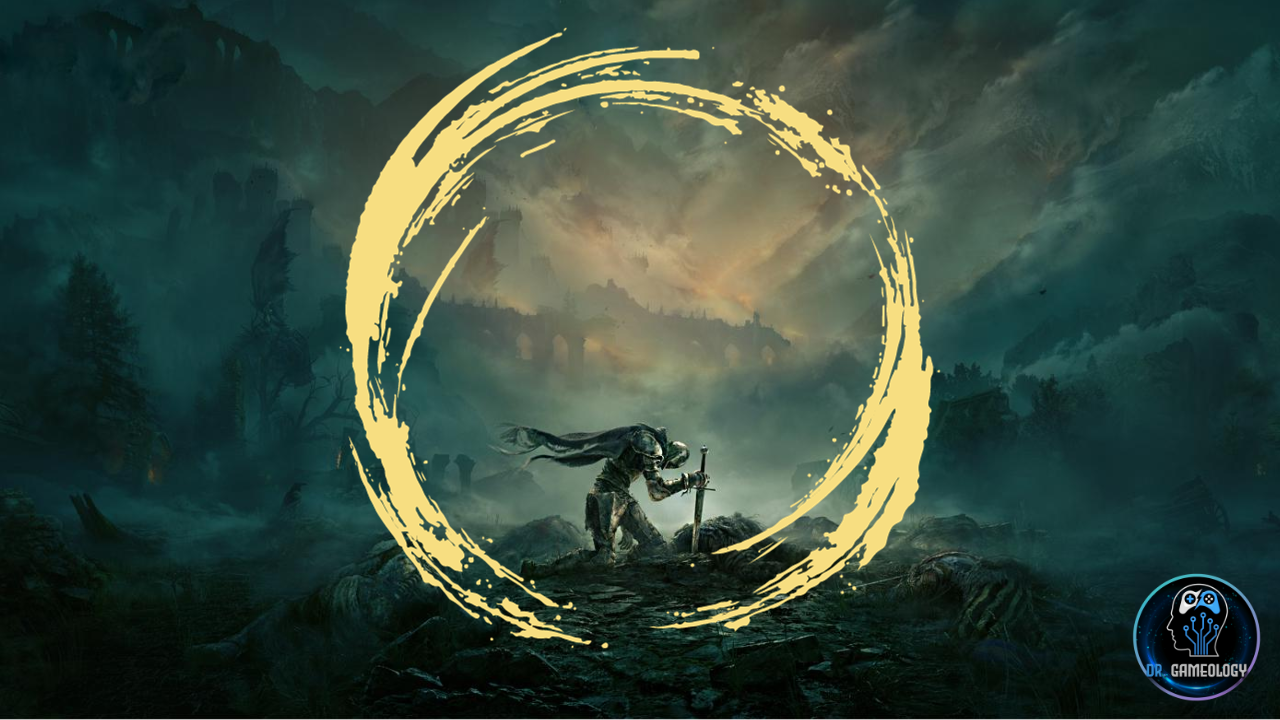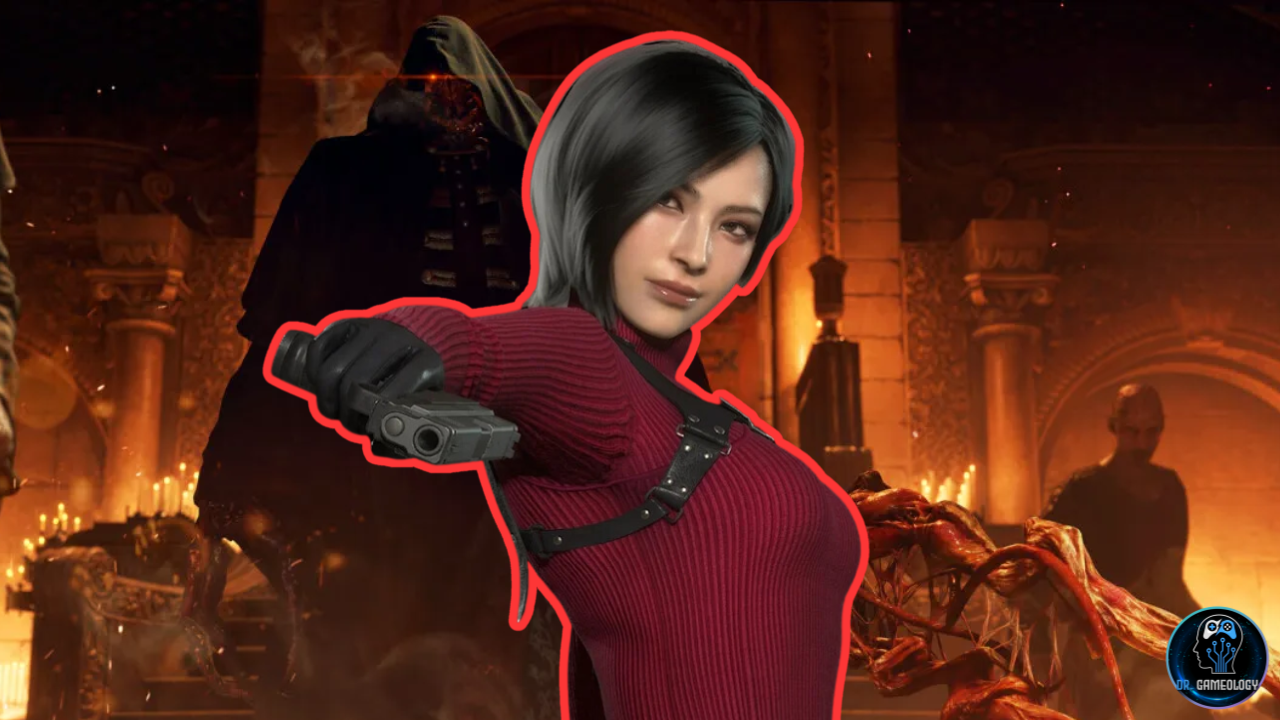Dr. Gameology and Jenny welcome Dr. Anthony Bean, psychologist and founder of Geek Therapeutics, to the show! This episode shows that we found another INTJ who loves psychology and video games, is himself a Therapeutic Geek, and explores many of the offerings GT has for many different types of people who enjoy games, fun, and general geek happenings in life.
—
Listen to the podcast here
Being A Therapeutic Geek With Founder Anthony Bean
I’m DrGameology on Twitch and other social apps. You can find me on this show, which can be found on Apple Podcasts, Spotify, Google, Stitcher and anywhere else where podcasts can be found. Jenny, what are we talking about from the world of video games?
We’re going to talk about a few different things. We have another special guest.
That’s 37 episodes in a row. If we’re being literal and not joking about it, what number is that? Is it five?
This is our fifth guest in a row.
That’s cool for something that we never set out and said, “Let’s do it this way.” I’m excited to share our conversation with our guests and audience. Something humorous was brought to my attention last time that I was all secretive during the Ordinary World part of the episode. Immediately, one of my good friends from the streaming side of things always keeps me grounded and reminds me how flawed I am as a human being. He said, “Everybody listening to the Nick Yee episode sees Nick Yee’s name in the title of the episode in the description.” You being secretive is a moot point.
It’s not secretive. I don’t want to introduce someone until they’re here.
Therapeutic Geek: The Ordinary World
Everyone else that gets to read this conversation benefits from having their time and relative dimension in the space vehicle, the TARDIS. They are in our future in a lot of ways. The things that we are anticipating are ho-hum minutes from now, whichever ends up happening. Are you ready to do the Ordinary World?
I’m ready and excited.
Let’s share our everyday life through our game. Jenny, what was your life like in the world of video gaming since the last time we had an extremely serious and important gaming persona conversation?
I’m officially a Y’shtola stan. I love her. Something happened in the story that was funny. I don’t want to talk about it because I don’t want to spoil it for anybody. It was hilarious. I love her so much. She’s great. That happened before I got into Shadowbringers. I didn’t get to talk about it but I wanted to make sure that it is known that I have caught up and she’s my favorite. Other than that, I have gotten into the Shadowbringers’ story and I’m loving it already. It’s super interesting. It captivated me, for sure.
We did the Omega Raids, which are fun. They involved one of my other favorite characters, Cid, who I’m a stan of. We got introduced to a new and super cute character, Alpha. He’s a baby Chocobo. He wears a sweater and I love him. That’s what we’ve been doing in-game. The other super amazing thing that happened is they did the Live Letter. That’s where they went over some of the changes that are coming for the new expansion. Have you gotten to read about it or watch any of the Job Action trailer or any of the information yet?
No, I have not gotten myself involved in any extra information about the game because I don’t want it to mess with my present.
First of all, this is the first time that I’m part of a game where I’m this involved in the game to where I’m so excited for new content to come out. I’ve been part of games where new expansions have come out before. In the other game, I played the game while there were plenty of expansions that came out but I never cared that much. For this game, I’m invested and excited.
I was in our guild, AIE Guild Discord, when the Live Letter went live. We started watching the Live Letter together. When the Job Action trailer went live, we were all watching it in real-time together. It was so much fun to be a part of that. As everything was happening, everyone was excited when their class came up. With all of the cool abilities and things that were new for each of the classes, everyone had all the exclamations of excitement. It was so fun to be a part of it.
Discover your superpower, push your limit, and don’t give up. Click To Tweet
I’m super excited about some of the changes that are coming. I play a healer class. I am a White Mage. There aren’t any crazy changes coming. One of the biggest things that they’re changing for my particular class is that they are making the cast times for our DPS spells faster, which is exciting. It means that we’re going to be able to do lots more damage, which is a lot of fun for me at least.
We got a couple of new spells that I saw in the Job Action trailer that looked cool and had some fun effects. I’m happy about that but it did make me think a lot about other jobs. Most of the time that I’ve been playing Final Fantasy, I have been a one-job person. I’m not trying out any other things because I don’t want to get confused.
I don’t want to try anything else because I’m having a hard enough time being a good White Mage that I don’t want to introduce anything else that will confuse me. Seeing the Job Action trailer made me want to do other jobs. I want to try Red Mage or Reaper, which is a new DPS job that’s coming out in Endwalker. It’s making it so that I’m struggling with who my character is, my character lore. It’s giving me an internal crisis. It’s been fun.
I can offer a reframe for some of that angst or internal tension, Jenny, when I switched classes and played that other class during a Duty with all of you. I played Dark Knight during something with you. I was tanking. You better believe that if someone taps Krile on the shoulder and says, “What are you doing?” The answer is, “I am playing Black Mage and impersonating a Dark Knight.”
There’s no forsaking my identity. It is easy to play other roles. If you look at the class list, they’re clustered into different class types like physical melee damage, range physical damage, magic damage, healing and then tanking. What happens is those clusters share a lot of the early basic moves. Some of them have the same picture. For some of them, it is the same functional move except the picture and animation are different.
For example, I leveled up to Ninja. I got it to level 30 so I could become a Ninja instead of being a Rogue. I’m leveling up Marauder, which is an axe-wielding tank class. They are almost the same thing but one has a tank stance because it’s a tank and more focused on defensive cooldowns, whereas Ninja has more focus on regenerating a small amount of health in the oh-no moments.
I did Ninja for 30 levels and then I’m doing the first 30 levels of eXp for the Marauder on my quest to become a warrior. It’s the same thing. I’m just doing it again with slightly different pictures and weapons in my hand. Those are both different than Black Mage. Black Mage is not very much different than Arcanist was, except Arcanist is DOT damage. The Black Mage was burst damage.
With all those similarities across classes, I’ve found it’s easy to juggle multiple classes at the same time, even if one of them is level 70, the other one is 60, the other one is 30 and the other one is 15. It doesn’t feel like it’s competing for the same space in my memory. With these ideas that I shared, it’s like, “This is how you deal with it on the other side.” What does that make you feel, Jenny?
I was on such a high after watching the Job Action trailer. Doing that with the guild and everything made me reevaluate how I feel when I’m playing White Mage. My confidence when I’m doing group content and playing the game is pretty up there. I don’t feel like things are as stressful for me when I’m playing my role. When we do lower-level content and I’m having to switch back and forth doing that stuff, it’s not as jarring as it used to be for me.
When I sat and thought about that, I was like, “I could go in and do a different job and feel fine doing that.” I’m going to start that soon. The other thing that I’m struggling with is being a healer. The feeling that I have being a healer is not the same. Historically, I’m a DPS character. Historically, I’m a dark character. When I play video games, I feel most comfortable being a dark character. That’s not only in video games but any role-playing game. That’s what I feel comfortable playing. It’s so opposite of who I am as a person and that’s what I like about it.
Luminaria, which is the name of my White Mage, I’ve been playing her as a White Mage. She’s a healer and helps everyone. She is not dark. I have been slowly transitioning her into a little bit of a darker character in my brain. I’ve changed the way that she dresses. I changed her hair. She has black and pink hair now. It feels so much more natural to me.
When I saw the Reaper and the way that job plays, I was like, “That’s who I want to be.” I don’t want to give up healing because it’s been so much fun. I like the power that healers have. Being a White Mage/Reaper combo, I don’t know that you can get any more opposite than that. That will be a lot of fun and that’s where I’m going to head.
That’s also interesting to me and maybe these are the shows that I’m watching but you’re having your high school goth phase in Final Fantasy. You’re going to come in one day with all different makeup color palettes and many more chains on your attire. The only more integrated you could get on your dichotomy of spirit is to be a Red Mage because you are using white and black magic at the same time as you go through the dungeons.
I didn’t even know that that is what Red Mages do until you said that. That’s the other job that has caught my attention. That’s the one that I’m going to start with before Endwalker comes out so I can get an idea of what it’s like to play DPS in this game. We’ll see what it’s like to be a Reaper.
Four months after that, you will learn a tank class and be multipurpose. Red Mage is a lot of fun. I can help in any way with you doing that. That’s one of my level 80 classes. I enjoy playing it. Other people in our friend group in the game are very knowledgeable about that class as well. That always helps when you’re trying to pick up a new class. For people who maybe don’t understand what we’re talking about, in MMORPGs, the class that your character is selected, you pick this at character creation.
In Final Fantasy, you can change your class based on what weapon you are wielding. That weapon changes your moves and abilities and changes your social role in the group between your responsibility to damage, provide heals or distract the enemies with your tanking abilities. Jenny is explaining to us with pretty good detail and thoughtfulness that she doesn’t want to keep fools alive anymore because her group sucks. That’s not what she’s saying.
You thought I was going to be all sentimental, thoughtful and professorial. It’s like, “No. Get good, group. You’re making Jenny not want to play her role anymore.” I want to share something so ironic given my Ordinary World. I had many things to say about Alpha, the cute, sweater vested Chocobo that all of you are googly eyes-ing over. I’m looking at him like, “This is such a manipulation of my emotions to enjoy these boss fights with their cutesy little story. Look, he’s running through the stars.” Of course, he is.
I understand marketing and why the old-school Toys“R”Us commercials are the way they are. This character is out of place with the rest of this world. Look at the size of his eyeballs on his little chicken head. Nintendo Direct happened. What game is announced to come out in 2022 for the Nintendo Switch? Chocobo GP. It’s a basic Final Fantasy rip-off of Mario Kart, which is such an amazing idea. I don’t hate this at all. Do you know what character is the primary one driving around in its little cart throwing limit brakes all over tracks that are Cid’s version of Mario Kart?

Alpha.
I don’t know if he has a sweater vest but his head is the same chicken.
I’m so excited. I’m glad that you shared that with me. My two favorite things in the world are coming together.
For people who watched the live show version of our first anniversary, we tried to hook up Mario Kart and there were some settings on my capture card that we’re saying, “I feel like PS5 is fine but not the Switch.” Afterwards, in brilliant, friendly trash talk fashion, you said, “It’s okay that people didn’t have to watch you lose to me in Mario Kart.” I was like, “You wait. It’s on.”
I do want to have a truncated version of my Ordinary World and share everything but the short version. Our guest is here and I’m excited to bring him into a conversation with our audience. He’s one of my best friends in the research and psychology of the gaming world that I stumbled into approximately around the time this show started. This has been a conversation in the making. I’m excited to get to it. This is the Ordinary World where I share everyday life through my games.
I started streaming God of War on PS4. I’m using my PS5 to do it but this is the God of War game that’s based on the Norse mythology that came out right when my part of the journey in life was figuring out how to be a good online faculty. That hit me hard with all these responsibilities and desires to create awesome materials and make these classes transcend the online medium to the best of my ability.
I didn’t play a lot of video games that were new to me from 2017 until about 2019. Final Fantasy XIV represents a big shift in what I decided to do as a video game player. Also, with experience, the materials are created. I look around and it’s like, “I only have four meetings. I can stream a game in the early part of the Eastern Time Zone because I work for the Pacific Time Zone. Nobody’s even awake yet and I’m almost done with everything.”
I started doing that. They’re 90-minute streams. There’s a story and I love it. There is a definite focus on father-son relationships and parenting styles. Also, it has RPG elements all over the place and an amazing combat system. This game is an amalgamation of all the things that tap directly into my player motivation.
Plus, I see video games as modern mythology. I had that thought because this game, God of War, features a person who, at the beginning of his story, was betrayed by Ares, killed Ares, became the God of War, got betrayed by Zeus, killed everybody you’ve ever heard of in Greek mythology, disappeared and then pops up. I don’t know who he is going toe to toe with. I saw him and I broke his neck. He assured me that it is not painful to him.
I don’t have any name reveals or anything yet. People who have played this game, you know more than me and you get to enjoy how blind I am to the plot. It’s based on Norse mythology. It has runes for magic. It’s a different world but it’s also familiar. I’ve wondered 1,000 years from now since we’re still talking about Greek gods and we can use those to instantly create hooks in our fiction to where we feel like we understand them.
Think of Percy Jackson. You use these gods. We learned about them in our childhood or elementary school and we had projects about them so we have this cast of characters where we instantly understand what their powers are and what they represent. It’s interesting storytelling. You have Kratos as the God of War in this story.
I wonder if mythology is going to continue on a path where maybe we forget that he’s an addition from the 2000s. If it’s the year 4000, assuming global warming doesn’t catastrophically bring Sephiroth’s meteor down on us or something, what’s the difference between 100 years BC and 2080? Maybe it gets so mishmash that this is going to be viewed as mythology as humanity continues further down the line. That’s way after Dr. Gameology has come and gone. It’s important for me to play this game.
I’m so excited that you’re playing this game. I came to one of your streams and it looks like a cool game.
I’m having fun with it. I did not put it on the lowest difficulty and the result is I can die. I have to take the combat system seriously. That’s important to me. Maybe the reason I never finished it after playing the opening minutes is that my mentality was like, “I don’t have time for a higher difficulty game.” As a result, I sabotaged myself because I never experienced the flow. It doesn’t matter what buttons I press. I’m playing a cinematic movie or an interactive cutscene.
A lot of games are that way. For me, I need to be able to die and win a fight that was not predetermined for me to win. The final thing that I would say I’m excited about and this also comes from Nintendo Direct is that N64 games are coming to Switch Online, which is the online membership to be able to play against other people and play games streaming them onto your Switch. That includes Mario Kart, Mario 64 and Ocarina of Time.
That’s such an important set of 2 or 3 years of my childhood that is going to be on my Switch to play whenever I have Wi-Fi. That’s crazy awesome. Also, Bayonetta 3. I never played Bayonetta 2. That’s another game on the backlog. Bayonetta is like Devil May Cry. It was created by the original creator of Devil May Cry. He left that project and created Bayonetta through a different studio. It’s jumping, combo-ing, guns and melee combat.
It features a witch girl whose power comes through her hair. Her hair is her outfit too. The way that she uses her hair, clothes and powers are designed to appeal to whatever age I was when the game came out on the male side. I love Bayonetta so I’m not apologizing for that. It’s on Nintendo. I’m guessing Bayonetta 2 and 3 probably have been toned down in terms of sexuality and imagery.
The first one was on PS3 where I would have played it. I’m excited about that. Nintendo did a good job. In the last episode, we talked about all the cool things that PlayStation did. Hopefully, our audience gets that episode uploaded and we can all be up-to-date with our ideas.
Therapeutic Geek: Finding Our Allies
It’s time for finding our allies because it’s too dangerous to go alone. Tony, how are you doing?
You're lucky if you have a master's level program that will teach you critical thought. Click To Tweet
I’m doing okay. How is everyone else doing?
We’re great. We finished our Ordinary World where we share our everyday life through our games. You are our ally on our journey. I’m going to introduce you quickly. This is Dr. Anthony Bean who is a licensed Clinical Depth Psychologist, video game researcher and Executive Director at The Telos Project, which is based in Fort Worth, Texas. He focuses on video gamers and their families.
Right there, there’s a natural connection of why we would be talking to each other. You’ve become one of my best friends in the field of video games, psychology, treatment sessions and all that. We met because you created Geek Therapeutics. I’m also playing Dungeons & Dragons with you every other Friday except when we’re campaigning.
You’ve also authored multiple academic articles and book chapters. Four books are published through Leyline Publishing. You have The Psychology of Zelda, Working with Video Gamers and Games in Therapy: A Clinician’s Guide, Integrating Geek Culture Into Therapeutic Practice and my favorite, The Psychology of Final Fantasy: Surpassing The Limit Break.
The way that I crossed paths with you, Tony, is I had known about Geek Therapeutics for a while. I had been doing my thing, focusing on teaching, getting into counseling and mental health conferences and being the best that I could be. I thought for a while, “I wish that I had the time to do something like Geek Therapeutics.” One day, I was like, “I’m never going to have time to do that so I will reach out to them.”
I click the little thing on the bottom right that websites do where it’s like, “Chat with us.” I did not have in my mind that I would be talking to you. I was like, “This is me. This is what I do. I have AOE Counseling. I do the gambling training online. I’ve been talking about video games for years in my dissertation.” The bot I thought I was talking to said, “My dissertation was similar.” I was like, “Is this Dr. Anthony Bean?” I want to make your answer sound cool here but the way I remember it, embellishing and making it fun is, “Yes, what’s up?”
Within a couple of months of that, I got to do my first Geek Therapeutics training and it was on the Myers Briggs Type Indicator and Star Wars: The Old Republic. I’m chuckling because, Jenny, if you remember, you said the other game. I want to own that because I had a conversation with you and some other people in our Discord about how we’re always talking about Star Wars: The Old Republic. I wanted that game to be everything for me but it’s not. I have trouble talking about it.
You also were talking about your love of Adam Driver, Jenny. Adam Driver plays Kylo Ren or Ben Solo depending on twenty minutes of the saga or the other hours that they gave us to watch. I had this vision when you said the other game in our Ordinary World. I was like, “I wonder how Kylo Ren reacted when everyone talking to him would have been like, ‘Back when you were a Jedi.’” I saw myself taking a red lightsaber and bashing my computer every time someone says the other game. Tony is the appalled First Order Lieutenant watching me destroy all this expensive equipment.
I don’t think I’d be part of the First Order. I’m a Rebel. I’d be with the Rebels. When we did my lightsaber stuff, I come off as green. I’m Guardian.
I would be red, Tony. The Jedi Code is great if you can be mindful and never achieve any goals. The Sith code is good for completing PhD programs and research projects because it’s all about breaking your chains. I enjoy breaking chains. Jenny, what do you think about lightsaber colors?
I like to think that I would be red but I don’t think I would be. This goes back to the Ordinary World where I’m struggling between the light and the dark all the time.
You’re a White Mage that wants to be a Reaper. Somehow, I introduced Tony, told two anecdotal stories and shared a deep psychoanalytic Star Wars example of what the other game represents for me. I’m indulging in every distraction from the journey that was planned. Maybe that’s what our readers want. This might be the conversation that they need and not the one they deserve.
You are going to the Dark Side.
You have watched that happen pretty undramatically in the form of our D&D games.
I have a meme that reminds me of you. Be on the lookout for that one.
I love your memes on the Geek Therapeutic page.
I find that the fun ones are not going to ruffle too many feathers. When I found this one, I was like, “This is Daniel to a T.” When you see this one, I hope you think of me.
I hope I see it. Could you describe it so that we can retroactively enjoy this conversation again?

I will read it to you because I don’t want to spoil it for you. It’s a merging of two video games. If you get the 1st one, you’ll get the 2nd one as well. It is, “An arrow may have your name on it but a fireball is addressed to whom it may concern.”
You said fireball and that automatically feels like it’s true to me. Whether it’s my wizard in our D&D campaign or my Black Mage in Final Fantasy, it’s all about casting a fireball. With our level up, Tony, I have a fireball in my spell list. Whenever we play our next session, I can’t wait to see something red on that map.
I’m only a level five monk. I was slightly disappointed in my level. I was like, “That has more health and another key point.” I was like, “That’s cool.” I feel like I got gypped on that one. We’ll see if I get to choose a feat and it’s going to be chaotic where I’m going to be bouncing off the walls and everything.
It’s still fun. This is my first campaign too. The way you play your character, you get to do so many different things in your move, especially when it comes to combat. You’re always talking about key points like, “Can I do this?” Most of the time, it sounds like you’re logical enough or smart enough with how you’re oriented to your character. Joe is like, “You can. Roll this.” You do a four-hit combo and end up on the other side of the room. At least this is how I imagined it as the new player whose head is spinning the entire evening.
I then get to do a five-move combo.
Tony, that is awesome as a person who has to stand still and cast things. Jenny, how do I get myself signed up?
You always play mage.
Tony, Leyline Publishing is how your books come into the world. My character in Final Fantasy lives in the Leyline. I’m curious. What was your motivation? Where did that name come from?
That name came from a big talk with my board and everything. We were trying to figure out a cool name. What’s something that can be done that’s geeky but doesn’t turn off non-geeks? When we did that, we were like, “Cool, Leyline.” There are ley lines in spirituality, geek culture and pretty much anything that we do.
One of the big things that came into play with it is I started researching ley lines and looking at them all over the world like Easter Island and all the cool stuff. I was like, “This is it. This is a culmination of a power-centric idea.” That’s what we’re doing with Geek Therapeutics. With Geek Therapeutics, it’s under a ley line education. There’s Leyline Publishing and Leyline Education. We do Geek Therapeutics as the main headline of it. We created it because it’s a culmination of a very powerful area in the world, which is what we aim to be.
Tell us more about Geek Therapeutics.
Geek Therapeutics is honed in on bringing clients but also training clinicians, professionals, non-professionals or whoever wants to be in there. We have non-professional certifications as well. We want you to be the hero that downed that dragon, the anime character that discovered their superpower and pushed their limit break or the superhero that is not giving up.
We train pretty much anyone in a geek-centric focus of ideas based on anime, pop culture, comic books, superheroes, video games, TTRPG and different RPGs to utilize it within a different therapeutic context outside of the normal realms of possibilities. We’ve gone through the fights with APA, NBCC and ACE, which are psychologists, Master’s level clinicians and social workers to be able to offer continuing education units for all of our training that are out there.
It’s anything that’s live and from our home study. We have over 75 hours and we’ll be over 100 hours of continuing education units. People can go in and be like, “I want to know how to use Thor for my depressive clients that are geeky. I want to know how Tony Stark and alcoholism can engage themselves a little bit more. I want to use an RPG to engage my client in a duet play, which is one-on-one or in a group format.”
That is our sole focus on what we can do to bring in the leaders in the field but also be the one-stop-shop for everything. We have ethics coming into play so people can be like, “I got my ethics that we have to do.” Even down here in Texas, we need 40 every 2 years. Out of those 40, 6 have to be ethics. I was like, “I’ll take these ethics classes every year and I’ll be fine. It will be great.”
We’re aiming to focus on being that place. If you think you want to use geek therapy in some format no matter where you are in the world, you’re coming to us. You come into the people who have all the experience and the experienced individuals training in their specialties. We recognize that we can’t be specialists in every area.
My main focus is anime, D&D and video games. Those are my areas but I dabble in fanfiction, comics and superheroes as well. I don’t know enough about the comic book realm or anything past those movies to be able to be like, “I can do a training on this.” If you put me in front of Legend of Zelda and someone playing a D&D campaign, I could talk for hours on that type of context. That’s what we want people to know. You’re not getting the same people. You are getting a plethora and multitude of people that are coming out. They’re working on these different geek-centric ideas to show what we are doing? How are we consuming media technology? How can we use it to better ourselves?
One of the things that I’m constantly impressed by is that there are so many people contributing content to what you’re doing. Also, there’s a joy and passion in it that is absent in, honestly, most ethics continuing education courses. My opinion of those is that it is a requirement for us to get our licensure renewed every two years in most states but it’s always boring. It’s just clicking through and doing the same thing every time. You’re taking that on, Tony. My first question is, are you doing fun ethics training? How can you possibly accomplish this?
Statistical analysis requires a lot of time and commitment. Click To Tweet
We have Bryan Duncan who works near me here in Fort Worth. He works for a very big hospital called JPS, John Peter Smith Hospital. He was like, “I’ll do ethics for you at a social worker’s level, psychologist’s level and Master’s level.” He does this training anyway. He is going to come on in and morph it with Star Wars geekiness to be able to hone in on those ideas of, “Do not do this. Do this. These are not the unethical things you are looking for.”
Did you tell everyone not to try to do ethics but do their ethics?
We have to do it that way. By making it fun and by doing that, we’re bringing in a lot to be wanted for the ethics course. We’re also transforming our learning management system where I get to see the next steps of that. People are going to be excited about that. We are building a learning management system that is a little bit more geek-oriented but also makes sense.
I’ve looked at lots of different learning management systems. I’m not going to get caught in the weeds on that one. What we found out is that they all suck, missing something and not doing something. The people who own it care about their profits rather than making it easy to use. I was like, “We’re going to make our own.” That’s what we’re doing.
When we get into the personality test of the Myers-Briggs, you’ll see it fits in perfectly. The way that I work is I find what I like and don’t like. How can we make this better and easier for people? You shouldn’t have to be making this harder. It should be an easy thing like, “I want to come in and learn about these things. I want to feel good about what I’m doing.”
If we do that with a learning management system and we help guide you, gamify it, get medals and do this stuff, it’s much more likely for people to be like, “This is awesome. Let’s keep doing this. I already have these two done over here and I need to do these two. I’ll complete this little mini-unit here. That’s going to be great.”
That ties into one of the responses I gave at PAX West for our Geek Therapeutics panel about Dark Souls. Dr. Kelly asked a question on the panel about how we respond to the feedback mechanisms in the game being at the difficulty level they are. The conversation naturally went into, “How do we learn and get better?” Where do most people expect to learn and get better? It’s at school.
I contributed to the idea that school fails us in this area because they’re so busy worrying about things that don’t connect with learning and personal growth. In service of these benchmarks are things that nobody personally cares about whether they achieve it or not, other than those who have a deep connection to the extrinsic factors that the motivation revolves around. You say that you’re gamifying the learning management system, to me, has my imagination running all over the place.
We need more of that in society. We have the psychological data that indicates this is how people can enjoy learning and yet, the places where we do learn rarely utilize that information. Who utilizes the information? Apple with their new iPhones and Google with their little cartoons every day. All these places in society engage the human psyche with good information better than places where we should be engaging the human psyche. Bravo, Tony. That’s what you made me think about.
That’s what we’re all about. That’s how we grow. You nailed something big. What’s missing in the educational system is critical thought. If you start to take a step back from that, you’re like, “I have kids that are going through the educational system. I can tell their prefrontal cortex is not created well yet as most kids are.”
The idea behind is that when they start this young, they have to be told what to learn and things like that. They may not take that on their initiative or a small percentage might. You’re thinking, “Cool.” When they get to high school, that’s when it’s starting to formulate and we’re still telling them. They get to undergrad and we’re still telling them.
If you’re lucky, you have a Master’s level program that will teach you critical thought and reteach it to you. It’s hard to relearn it if you haven’t been steeped in it already. When you get to a doctorate level, good luck. They’re not going to tell you what to do. They’re like, “We want to know your opinion. Here’s a ten-page paper that’s due next week. I want to know your thoughts.” You’re like, “On what?” They’re like, “On everything.” You’re like, “On what of everything?”
There are so many directions I want to go but I’ll comment on the children who lack the prefrontal cortex development and creative thought. Do you know what gamification does, Tony and Jenny? If they’re playing Mario Kart, they know not to be front running in 1st place until the end of the 3rd lap because a blue shell will stop them from winning. If you present the consequences and disappointments correctly, you will find their brains are powerful tools for figuring out impressive things, even getting through things like an escape room.
We might be underestimating them because we give them the wrong challenges all across the board. When I’m talking with parents or collaborating with teachers or school counselors, a lot of my thing is, “Let’s think about this person from a developmental perspective and assume that they’re not deficient. They are angry because that works for them in a certain context.” What is that context? What’s happening in the classroom that’s triggering that?
They were disrespectful or lost track of time. Why would they lose track of time? What is their brain engaging in attention for? What is happening that’s creating inattention? There’s this narrative too much that we don’t need to make things compelling via gamification or put effort to make it developmentally interesting for the audience, which are kids ages 5, 9, 14, 18 and 24. I’m so old that the 24-year-olds feel like kids.
We call them emerging adolescents. That’s what happened.
I am in the weeds as you call them. We have some things still to talk about. You have a Kickstarter going, Tony. With so many interesting and gorgeous-looking dice sets, how’s that going? Can you tell our audience a little bit about that project?
That one is going fantastic. We have most of it ordered already. Most of it is over here. When we first started the Kickstarter and planned it, it was all about, “How can we get this type of product over here that can make it less expensive but a higher quality if not comparable with other people?” That’s what we ended up doing.\

We created the Pouches of Potential over 3 to 4 months. We have tons of samples created. We ended up making them out of this Lisi Velvet, which I didn’t know existed until this happened. I went out to Joann’s Fabric and was like, “Please show me your Lisi filament.” They’re like, “That’s very specific.” I was like, “I know.” They showed it to me and I was playing around with them. I’m like, “This is going to be good.” We created the Pouches of Potential out of that because we all have our potential.
It’s also important that sometimes we need to reach inside of our inner bag and pull out different sets of potential depending on what’s in there. We designed the bags to be reversible. You can use them for D&D, pencil holders or however you want like holding marbles or whatever it is. When they hold these pouches, we want people to be like, “My potential is limitless.” In D&D and the bag you’re holding, you never know what you’re going to pull out but you can also store a lot of stuff inside for yourself. We’ve created a fun metaphor for it.
You also get a whole bunch of Gemstone Dice. There are 31 sets. I’m probably going to open up all of the sets at the end of it because I want people to have options and people like options. People will have the opportunity to purchase almost everything that’s on there. That is going to change the way people think about it.
When you’re rolling something in D&D or another game, you’re usually using some plastic dice or, if you’re lucky, a glass dice or something like that. That’s where these come into play a little bit more. They’re made out of different gemstones. Whether you want something in obsidian, cat eye, amethyst or my favorite, the ocular glass ones, which are beautiful, it came out in every better hope that I could have ever hoped that they would have come out. I was like, “These are going to be great.” I saw them and was like, “These are going to be the best ones and the hottest selling thing.” They did. At PAX West, they sold out in under two hours. We had to hold one case back because we raffled one to people. It was the hottest selling item that we had.
There’s a whole bunch of other stuff that’s in there too like dice towers, dice rolls and wooden dice holders that are big enough to hold Gemstone Dice. If anyone who’s out there doesn’t know, usually when you get Gemstone Dice, they are slightly larger than the normal size of dice. I have a bunch of different types of wooden dice holders. I know the quality of them. They’re of good quality.
The dice bounce around because there’s no padding in them and they can break. We designed these dice specifically. They can still move around but there’s a special velvet pattern on the inside that’s going to keep them from chipping and cracking. The dice towers are in different colors. There are dice rollers. There’s even a D20 Stress Ball that we love because you can give it to your clients and be like, “If you’re having trouble making a decision, you roll this and see what comes up. If it’s high, AKA ten or higher, maybe you should do that decision. If it’s low, maybe it’s not the right time to make that move.”
We like people to have a different feel to focus on and enjoy geek culture because we can utilize it every day. That’s why we made the Geek Therapy Card Deck and everything else. Daniel knows half of this stuff there. The Kickstarter is going great. It’s funded in under eight hours. We’re going to do one for The Psychology Pokémon book.
I have a little bit more research to do on that. We will probably be doing that with a special hardcover limited edition. There are only going to be 1,000 of them made and they’re going to be hardcover with gold foil. We’re going to have a special cover on them that we’re creating that is going to be awesome. I’ve seen the first draft of it. It’s pretty great for all of us first-geners that wanted to use the original three Pokémon plus all their evolutions, plus some special ones that are coming on.
You made a hollow foil version of the Pokémon psychology book is what you’re telling me.
I did do that. Since you’re a writer, I’m probably going to do my best to get all the writers a copy of it.
Writing that chapter, it was so much fun to work on that and then get feedback from you. The book is not locked in the final version yet but it helped me to see what I do in a different context, Tony. I want to quickly say thank you for that opportunity. Also, the journey presentation. Those are two things that exist because of collaborating with your company. They’ve become good foundational elements of what I am when I say anything having to do with Dr. Gameology and things like that. It’s very instrumental. Tony, what’s your gaming persona with motivations for playing video games?
I am the highest in mastery, 2nd-highest in achievement and 3rd highest in social.
Jenny, do you know anybody who’s like that?
You guys are both the same people. Your Myers-Briggs Type is identical too. You’re our third guest to have an INTJ personality type.
It’s what I thought it was going to be too. I remember taking this earlier in my lifetime and I was like, “This is what it is.” I took it and was like, “It’s still the same.”
Jenny, you’re the only friend or person I talked to that doesn’t have an INTJ.
I guess so.
Feeling is important.
Memes are broken into four different layers; if you understand each layer, you can understand the meme as a whole. Click To Tweet
You’re the first INTJ to say that on the show. Usually, you’re all against me.
I say it because my lawyers told me a couple of years ago that I need to remember to work that in.
My wife is an ENFJ.
That’s fun.
It is, let me tell you.
What’s it like being around an extrovert, Tony?
It’s exhausting sometimes. Sometimes it is the crux of the fight, the argument we will have. She’s like, “Let’s do this and that for the birthday.” I’m like, “Ma’am, it’s not your birthday. It’s mine.” She goes, “That’s fine. Let’s go do all this stuff.” I said, “It’s not your birthday. You don’t get to choose that.” She’s like, “I’m so confused. Why don’t you want to be around people?” I’m like, “You’re enough.”
That’s romantic and enraging.
It’s one of those weird things. She doesn’t know whether she needs to hit me or hug me. It’s fun that way.
One of the things about what you do with the research of games is that our dissertations are close in the temporal time-space of humanity. Yours got published first and then a few months later, mine was. They both were looking at personality. I use the Myers-Briggs. Thank you for completing our approximation of that for the show. You used a five-factor inventory structure for personality. It would be fun to ask you, where did that study come from? How does it fit into the way you see video games and the way we play them?
That study came out all through my degrees, Bachelor’s, Master’s and Doctorate. I have one published study for each degree while I’m obtaining it. I did a smaller scale of that study with World of Warcraft players and Gary Grothman. He pretty much is The Textbook God of Psychological Assessment and Testing. He took me under his wing. He and I did a study on World of Warcraft players using the big five inventory.
We got that published and I was like, “I already have this here. I know it. It’s intuitive. It makes sense. Let’s do the dissertation on it. I’ll probably get 1,000 people.” It turns out that I got over 19,000, which was a bit redonkulous for that. I didn’t think it was going to be that well-accepted. That’s how that came into play.
It was more interesting to see that when we did Latent Profile Analysis, LPA, which is a very high order statistical analysis, I would tell everyone to not do it. It’s annoying as hell. It’s a lot of time, commitment and work to understand because there are so many steps and ways that you have to define what you’re doing.
We came out with four profiles because three didn’t quite work too well. Two of the profiles are almost identical except for the neuroticism score. One of the profiles was higher. The other was lower by ten-plus points, which is a pretty big gap in a sense. The standard deviation was two points each. It’s 3 to 4 standard deviations around where it was compared to the other scores.
What we found out was there were introversive gamers and extrovertive gamers. There were secure ambiversive and insecure ambiversive. The insecure were the ones with higher neuroticism individuals. They’re more prone to be emotionally volatile is what we would call them. It’s like what we were talking about with the prefrontal cortex. Sometimes they’re going to be impulsive and blow up on someone versus someone else who’d be like, “That hurts but I’m going to hold on to that and get rid of that later on. I’m going to tell you how I feel.” That’s the difference between neuroticism. That’s after Gary and I talked to some of the people over in California that were the creators of it.
We’ve found it to be interesting because then it led me to write one of the first books. What does it mean to play the games in different ways? This is funny because I knew of Nick Yee’s work, The Gaming Persona type profiles. The stuff that he was doing was in line with what I was doing too. It was fascinating to watch us go in these different ways. He used to work for Ubisoft and I knew him first when he was still working at Ubisoft before he went to Quantic Foundry.
When we started getting our data and comparing some notes briefly, we didn’t ever switch data sets or anything like that, they’re mimicking each other on some levels of what introverts play versus what extroverts play versus the ambiversive people choose to play. The X Factor is what we call them. That’s where we came up with those different archetypal ideas. What does it mean to be in different archetypal tropes? What does it mean to be a competitor, someone who’s a healer or someone who’s a ranger versus a spell caster?
All of them have different combinations based on the styles they prefer to play as. As we know with video games, a spell caster in World of Warcraft is going to work in similar ways as in Final Fantasy. Different nuances bring us together such as healing spell casting versus damage spell casting versus DPS versus tanking versus healing other areas. That’s what my dissertation was about to try to parse out a lot of those informational points. I did a pretty good job. I got a book published from it so I can’t complain too much.

That’s interesting because when you break someone down with the five factors, the acronym is OCEAN. You have Openness to experience, Conscientiousness, Extraversion, Agreeableness and then Neuroticism, which is the one that you explained to us for the audience. You get these percentage scores as we have in our motivation profiles here for hexagons. Nick Yee was our first guest who talked with us. I didn’t know that the two of you are bouncing around the same space. That’s fascinating, Tony.
Your profiles lead to the ability to see how the personality translates into more of a cluster of how you play games. It also uses a lot of the language from some of our psychological theories. Attachment Theory is the first thing I’m thinking about in terms of, “How secure are you in your failures or critiques from other players? How inflammatory are you in your social responses to other people on your team or people who might be griefing you in chat or on your headset?” These are the things I’m thinking about.
When we play our D&D sections together, sometimes people might potentially get the wrong idea that I might be a little bit harsher with my tone and voice towards Shane, one of our good friends, in the game.
He’s awesome. Can we say some nice things about Dr. Shane Tilton?
He has a meme book, which is cool. I’ve read it. It’s great. I love it.
It’s such amazing news on my Facebook timeline. His meme book looks like it’s going to be legitimate and fun to read. I’m so excited about that. Excellent work, Shane. We got to get you on the show.
I’m very curious to hear how memes relate to psychology.
He’s going to do a way better job than I will ever do on it. He’ll talk about the memetic influence on it and how memes are broken into four different layers. If you understand each layer, you can understand the meme as a whole. As a clinician, I love it when my clients bring me memes. I’m like, “How was your weekend?” They’re like, “I don’t know how to phrase it in words.” They showed me a meme. I was like, “I get and know what you’re doing.” That’s us as clinicians. Someone put out there that memes are going to be the new Rorschach. They’re telling me exactly how you’re feeling and experiencing life and that’s okay.
I’ve never thought about that in terms of the Rorschach but I can see it being that way. Jenny, after the explanation of Tony’s research, knowing he’s an INTJ and his motivation for playing games is something you’re familiar with talking to, do you have any curiosities about that?
How does that manifest itself in your gameplay? Your motivation is to play. What games do you play? What do you find exciting and fascinating to play?
This is the fun thing. I like strategy games and achieving almost the impossible. I will play Sins of a Solar Empire and Endless Space on the hardest difficulty possible. I’m going to get my butt kicked hard on the first 100 turns. If I can withstand that and survive longer than those 100 turns, I usually can always overcome the odds at the end. They start to stop focusing on me because I’m no longer weak and I’ve started building something, which is a great metaphor for how we also should look at life.
Sometimes we have to take damage to surprise and go beyond our means. That’s what geek culture teaches us in anime. Black Clover does a great job with Asta going to Nacht when he’s about to be defeated. His Black Bull leader is always telling him, “Go beyond your limits. Go past that.” Final Fantasy is with our Limit Breaks. The idea of Pokémon is sometimes you’ve got to fail before you can understand the right Pokémon to pull out when you’re fighting a water type rather than using your Charizard.
He falls asleep on you and decides not to do the moves you instructed him to do.
Your style of gameplay is similar to when we watched Daniel’s savage raid on Tuesdays.
I don’t want to think about that, Jenny.
In MMOs, I tend to play a healer. When I used to play World of Warcraft, I would play a Druid. Druid was my class. I started with a warlock. That was great. I got bored of DPS because when they used to have deep talent trees, I could go and figure out what’s going to give me the best one, min-maxing. That got boring for me.
I switched to Druid and I’m like, “If healing is boring, I’ll switch to tank for a while. If tanking is boring, I go to DPS. If I’m bored of that, let’s go back to healing. Let me go into one of the hardest things, kick out some healers and see what I can do.” That’s where that achievement comes in. What are my limits? How can I push them? How can I continue to develop those skills whether they’re from a virtual realm or a real-life realm as well?
I’m hung up on you, Jenny, comparing my savage raiding to this. I’m questioning, why don’t I play these strategy games? This is a consistent theme. I’m wondering when I look at the challenge of certain things, I look at what the reward is and the time investment. I do this unofficial calculation in my head, “Do I care about this enough to keep doing it because it’s painful?” I keep doing it.
Play games not just to decompress but also to know your limits and how you can push them. Click To Tweet
I have this reaction to the high-intensity boss fight, “Does it matter if I finish this?” I do have this real-world success versus virtual world success. I honestly feel like virtual world success is less valuable to me than real-world success. I have worked with many clients who don’t think about that. If they do, they conclude in the opposite direction.
My goal is to try and motivate people to see the metaphorical bridge between their motivations and to decide to take up that tough challenge that might take twenty years in the physical world or the actual world versus only the virtual world. That’s where I fall into this hole. This is how I play as an INTJ and what I try to explain to people.
I play it for the playing.
The official answer from our guest, Jenny, is that I am overthinking it.
Sometimes you play games to decompress but also to be like, “What are my limits? How can I push them? What can I achieve? Can I do something harder?” There was a time when we played World of Warcraft in Naxxramas if anyone is familiar with that. We were on Sindragosa. It’s the name of the ice dragon before you fight Lich.
All of our healers died in our ten-man raid. There were three of us. I was a Druid healing. I kept the entire party up to finish that fight in over ten minutes. It was one of the greatest crowning achievements that I’ve ever had because I was like, “This is how I know I’m meant to be a healer. I’m unstoppable,” and everything else that’s going on that way.
We also get to choose and I’d be with this paladin. We’d be decked out. We would wipe the floor with everybody. It was funny because they couldn’t kill me in time if they were Rogues and stuff to be able to stop me from healing myself. My heals were too powerful as a druid. We would wipe the floor. We play ten games and win all ten. We got up to one of the highest ranks in Wrath of the Lich King back that year.
The way that you describe that fight where you were the sole healer, that’s why I don’t want to give up healing because I liked that feeling. By no means, am I at the god-tier level of healing in Final Fantasy at all? I love the power that comes behind being the healer and keeping everyone alive.
I’m sure you have that feeling at the end too if you have Limit Break 3 where you can instantly bring back everyone at full health and get that one final push to successfully finish the fight. That’s MVP stuff right there.
The first time I did that was such a great feeling.
Tony, as we head into the end of our journey for this conversation, I want to ask you what game has caused the most change in how you view the world or had the most significance in your worldview up to this point so far?
That would have to be Ocarina of Time. I love that game. When it comes out on the Nintendo, I’ll probably buy it again for the umpteenth time. I love it to the point where it got me through my childhood and everything that I needed to do. I could see myself leveling up through there even though there’s not a level system by gathering a new tool. You got to go out and explore how you can use this tool differently. How can these things come into play a little bit? What I loved about it all is how I can use that. That game itself is still emblazoned upon my mind. Also, playing Pokémon GO: Let’s go, Pikachu! with my son has been a blessing and fun.
Those are common mentions on our show. Also, I don’t know if you saw the Nintendo Direct but Ocarina of Time is coming in the first set of N64 games to hit the Switch Online streaming service.
I’m excited. I saw it and I almost pissed my pants.
Therapeutic Geek: The Return
It’s been a great conversation. It’s a good time to return.
Tony, you can participate in the return too. All of our segments are framed after The Hero’s Journey. Ocarina of Time is so amazing because it is the perfect video game expression of The Hero’s Journey. There’s almost no reason to have any other video games after you play it. We want to play more video games but Ocarina of Time is perfect in that area. Let’s go on the return where we go back to our daily lives and take our next step forward. Tony and Jenny, any final thoughts about our conversation that we got to experience?
I wanted to say thanks for coming to the show. It’s very nice to meet you. I’ve heard lots about you. I’ve been following your Geek Therapeutics page for a while and seeing all the cool things that you’ve been doing. I’ve watched a bunch of your D&D streams. It’s been fun to get to see Daniel playing D&D because it’s a new thing. It’s fun to watch that unfold and happen. Also, all of the amazing things that you do like gamifying CEU classes for therapists.
I love when different industries bring games into the world of education and our world. I’m a photographer. I have gaming and fandoms in my branding, my marketing and all over my website. It’s fun to be able to connect with people in that way. It’s engaging and something that draws your people in. I love to see that you guys are doing this in the therapy world and in that world. It’s helpful, especially for clients. It’s something that people can relate to. It’s such a great icebreaker like out in the world. I can’t imagine how amazing it is in therapy.

Thank you so much for that because we are always pushing ourselves to our limits to do that. This is going to be a wild ride. To know that it is valued by other people as well is great for us to continue pushing ourselves to go forward that way.
I’m excited to figure out what the next thing that we get to collaborate on, see how long it will take to become level six in D&D and become more persuasive with Joe that those things in the room are combustible. If I can figure that one out, my life will be at a level of contentment that it hasn’t achieved ever as Joe’s little tabletop world burns for us all. Chaotic good is fine. I swear that there’s good in there but we’re not too sure sometimes.
Chaotic is important to know how we’re going to face the world around us.
You end up chaotic when you realize that good is the right idea but I don’t trust society to do it right. For me to fit into the lawful crowd would be a sacrifice of some things that I feel are important. It’s counter-culture good. I have one last quest for everyone to collect for the day. Achieve your Limit Break and…
Continue the Journey.
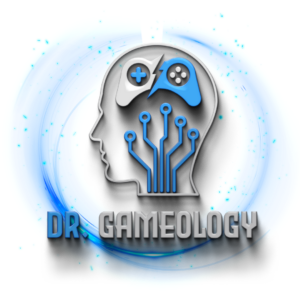
Be sure to check out more amazing episodes of The Gaming Persona!!
Important Links
- DrGameology – Twitch
- Apple Podcasts – The Gaming Persona
- Spotify – The Gaming Persona
- Google – The Gaming Persona
- Stitcher – The Gaming Persona
- Nick Yee – Past Episode
- AIE Guild Discord
- The Telos Project
- Geek Therapeutics
- Leyline Publishing
- The Psychology of Zelda
- Working with Video Gamers and Games in Therapy: A Clinician’s Guide
- Integrating Geek Culture Into Therapeutic Practice
- The Psychology of Final Fantasy: Surpassing The Limit Break
- AOE Counseling
- PAX West
- Pouches of Potential
- Gemstone Dice
- D20 Stress Ball
- Geek Therapy Card Deck
- The Psychology Pokémon
- Meme Book – Meme Life: The Social, Cultural, and Psychological Aspects of Memetic Communication
- Sins of a Solar Empire
- Endless Space
About Anthony Bean
 Dr. Bean has worked across the lifespan focusing on various difficulties with specific life circumstances and general life concerns. He focuses on individual strengths and normalizing experiences throughout the lifespan and encourages individuals to rediscover their internal strengths. Additionally, Dr. Bean specializes in video games, children & adolescents, and the virtual worlds played in. He is considered an expert in this growing field, has been published extensively in the discipline. He works with children, adolescents, and adults who play video games and their families to better understand the immersive effects video games have upon the individual and resulting family dynamics.
Dr. Bean has worked across the lifespan focusing on various difficulties with specific life circumstances and general life concerns. He focuses on individual strengths and normalizing experiences throughout the lifespan and encourages individuals to rediscover their internal strengths. Additionally, Dr. Bean specializes in video games, children & adolescents, and the virtual worlds played in. He is considered an expert in this growing field, has been published extensively in the discipline. He works with children, adolescents, and adults who play video games and their families to better understand the immersive effects video games have upon the individual and resulting family dynamics.
Dr. Bean utilizes video game character identification techniques and other archetypal experiences to understand/develop intrinsic motivations for playing, personal identity, and discovering conscious/unconscious conflicts. He works with children, adolescents, and adults on discovering personal symbolic transformations through the playing of video games and common diagnoses to great success.
Dr. Bean’s interests include archetypal identification, depth psychology, video games as therapeutic tools, play therapy, and personality research. He has been published regarding psychopathology, video gaming, personality of gamers, adolescents and gaming, and currently works to understand identities in virtual worlds and its interplay with the real world.
